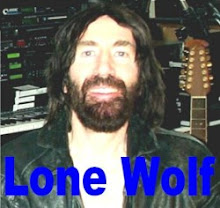
Director David Lynch's feature film debut took him 5 years to complete. He has refused to say anything about this weird, shocking and disturbing experimental film, except that it is a "dream of dark and troubling things" and he has never read an interpretation that is the same as his own.
Henry Spencer (John/Jack Nance) is a zombie-like printer who is on vacation for the entire movie. He lives in a run-down city with rows of abandoned buildings. Perhaps it takes place in the post-apocalytic future, or maybe it's all a nightmare. Electric lights constantly flicker, water pipes are always leaking and there is a constant humming noise.
Henry has dinner with his spastic girlfriend, Mary X (Charlotte Stewart) and her parents, Mr. and Mrs. X (Allen Joseph & Jeanne Bates). Dinner consists of tiny chickens that move their legs and ooze black gunk. Mr. X says, "I've watched this neighbourhood change from pastures to the hell-hole it is now." Mrs. X comes on to Henry, then we learn that Mary has given birth very prematurely and he must marry her.
Mr. X: "I thought I heard a stranger. We've got chicken tonight. Strangest damn things. They're man made. Little damn things. Smaller than my fist. But they're new. Hi, I'm Bill."
Henry: "Hello there. I'm Henry."
Mrs. X: "Henry works at LaPelle's Factory."
Mr. X: "Oh. Printing's your business? Plumbing's mine. For 30 years now. I've watched this neighborhood change from pastures to the hell-hole it is now."
Mary X: "Dad!"
Mrs. X: "Bill!"
Mr. X: "I put every damn pipe in this neighborhood. People think that pipes grow in their homes. But they sure as hell don't. Look at my knees! Look at my knees!"
Mrs. X: "There's a baby. It's at the hospital."
Mary X: "Mom!"
Mrs. X: "And you're the father."
Henry: "Well that's impossible! It's only been..."
Mary X: "Mother, they're still not sure it is a baby."
Mrs. X: "You're in very bad trouble if you won't cooperate..."
Mary moves in with Henry. Their baby is grotesquely reptillian and constantly cries. Mary cannot stand the crying and moves back with her parents. Henry can't cope with the deformed baby either. It goes into violent convulsions and breaks out in spots. Henry exclaims, "Oh! You are sick!"
One of the best parts of the film is the Lady in the Radiator (Laurel Near) in Henry's apartment. His hissing radiator opens to reveal a dancing lady on stage and she sings, "In heaven, everything is fine. You've got your good things and I've got mine." She stomps on and squishes worms, which appear in many scenes.
Henry has a sexual relationship with the Beautiful Girl Across the Hall (Judith Anna Roberts), who asks him, "Are you Henry? I locked myself out of my apartment...and it's so late." Other experiences include becoming pregnant, and being consumed by a planet. Jack Fisk, David Lynch's brother-in-law, plays the Man in the Planet.
The film's title comes from a fantasy sequence in the last half of the film. Henry's head detaches from his body, falls from the sky, and lands on the pavement where it cracks open. A young boy (Thomas Coulson) takes the head to a pencil factory where the workers determine the brain is suitable material for pencil erasers.
Eventually Henry cuts his baby's bandages, which were actually holding it together. He stabs the exposed internal organs with scissors and a huge apparition of the baby's head fills the apartment. The last scene shows Henry being embraced by the Lady in the Radiator.
Also in the cast are: V. Phipps-Wilson (Landlady), Jean Lange (Grandmother), John Monez (bum), Darwin Joston (Paul), Neil Moran (Boss), Hal Landon Jr. (pencil machine operator), Jennifer Chambers Lynch (Little girl), Brad Keeler (little boy), Raymond Walsh (Mr. Roundheels), Toby Keeler, Gil Dennis, Doddie Keeler, and Peggy Lynch. David Lynch wrote the music, script, produced and directed.
This surreal, repulsive cult classic defies interpretation and has its own demented, inscrutable logic. The plot is not very linear and there is a blurry line between fantasy sequences and the narrative. It's similar to Salvador Dali and Luis Bunuel's surrealistic UN CHIEN ANDALOU (1928), which included dead donkeys on pianos. To try to make sense of it is foolish. Just enjoy the entertainment and a jolt to the intellect.
ERASERHEAD is in black and white and there are long periods without dialogue. It is definitely not for children or the squeamish.
